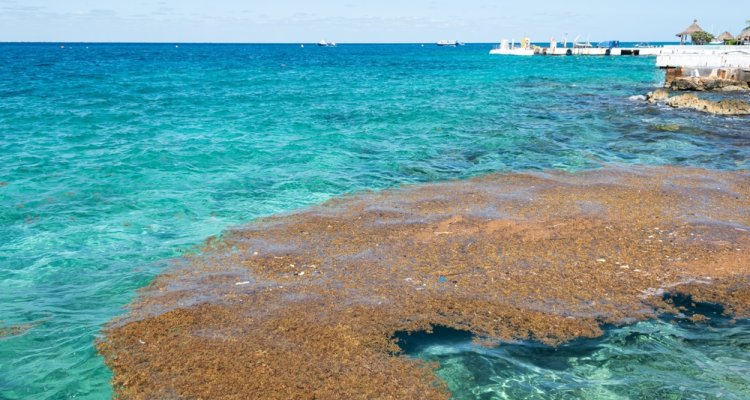
Project
Sustainable and Circular Organic Waste and Sargussum Management on Bonaire
In this project circular approaches to sustainable management of organic waste streams in the Dutch Caribbean, using Bonaire as a case study will be developed. At Bonaire, organic waste is collected jointly with other waste and mostly landfilled. This causes GHG emissions, nutrient leakage and eutrophication of natural environments and the coastal habitat. The biomass collected from the Sargassum seaweed influxes, that cause severe environmental damage in the coastal ecosystems when not harvested nearshore, will be incorporated to the waste streams. Organic residues and wastes (food waste, agricultural residues, manure, garden waste, Sargassum, etc.) will be mapped and assessed in terms of amounts over the year, composition, current uses and potential uses, circularity of current uses and expected development over time. Sargassum biomass, that currently is disposed of, will be valorised with the other organic wastes thereby creating (more) circular value-chains that contribute to regenerating natural (marine) habitats and agriculture.
Because of the diversity of wastes, several applications will be studied: 1) Direct applications for food/feed products, 2) Applications of (mixed) organic waste streams, digestate from anaerobic digestion and wastewater as substrate for compost or soil enhancers (reducing imports of comport and fertilizer) and 3) The production of biogas (for electricity generation, replacing fossil diesel) and digestate based compost from the organic wastes and Sargassum. Depending on the content in heavy metals, or other toxic components of the organic wastes, “clean” and “polluted“ conversion systems will be designed. This will avoid that polluted organic wastes enter the feed and food chain or end up on agricultural land (compost) or nature. Environmental, social and economic impacts will be assessed for the value chains. In addition, knowledge exchange will be realised with other Caribbean (Dutch and French) islands by joint events (workshops, meetings, etc) to maximize the impacts and efficiency of the project.
Publicaties
-
Using sentinel-2 imagery to map the timing, distribution and scale of recent Sargassum influx events in the coastal zone of Bonaire, Caribbean Nehterlands
-
Organic flows in Bonaire
Wageningen: Wageningen Food & Biobased Research (Report / Wageningen Food & Biobased Research 2583) -
Monitoring impact of recent Sargassum influxes on mangrove cover in the coastal bays of Bonaire, Caribbean Netherlands
Den Helder: Wageningen Marine Research (Wageningen Marine Research report C043/24) -
Mapping the timing, distribution, and scale of Sargassum influx events in the coastal zone of Bonaire, Caribbean Netherlands
Den Helder: Wageningen Marine Research (Wageningen Marine Research rapport C023/24)